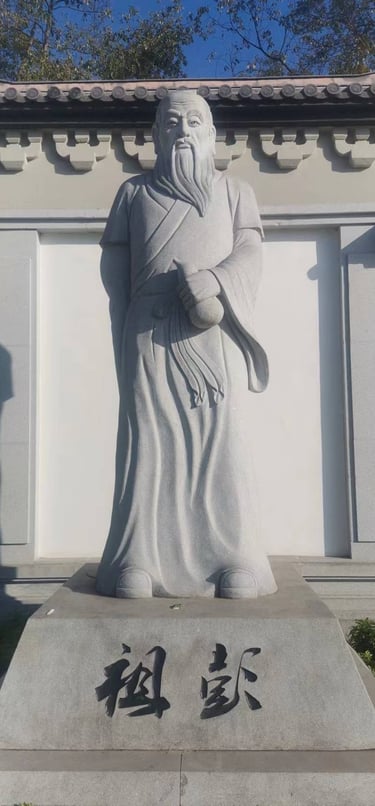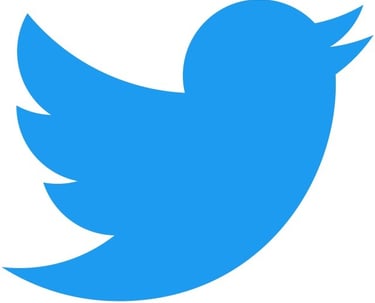

Brief discussion on the philosophy of traditional Chinese medicine
Dr Zhu Weimin Dr Yang Yibin
Abstract
Philosophy is the science that guides all other sciences. Chinese philosophical thought has deep and ancient roots, dating back to a time before the existence of writing. However, traditional Western philosophers claim that ancient China had no philosophy. This article does not address other disciplines but focuses solely on the philosophical ideas within traditional Chinese medicine, presenting them for discussion. According to Chinese medical theory, the human body simultaneously contains both materialistic and idealistic ideas, which coexist in a relationship of unity and opposition. This reflects a universal truth. This perspective complements Western philosophy (which lacks a classification of consciousness) and also critiques it (since Western philosophy views materialism and idealism as enemies, each denying the existence of the other). Understanding these principles allows one to recognize that Chinese medicine is the true science, a science more rational than Western medicine.
Title Explained:
Why say "traditional Chinese medicine" rather than "Chinese medicine"? Because there is a slight difference between the two. Currently, most people speak of "Chinese medicine," which is indeed just a small part of traditional Chinese medicine. What is philosophy? This question has always been debated by both Western and Chinese philosophers. Was there philosophy in ancient China? Indeed, the term "philosophy" did not exist in ancient China. This word was translated into "哲学" (zhéxué) by a Japanese during the translation of Western philosophy, where "哲" means wisdom. Many Western scholars, represented by Hegel, concluded that there was no philosophy in ancient China after studying the 《Yi Jing》, Laozi, and Confucius. The author believes that the central issue of Western philosophy is the relationship between matter and consciousness. The two main opposing schools of thought are materialism and idealism, i.e., metaphysics, which have been debated for centuries. The fact that the term "philosophy" did not exist in ancient China does not mean that there was no philosophy. Isn't the theory of Yin and Yang wise enough? It can be used to explain all things in the universe, including the relationship between matter and consciousness. Under the guidance of the Theory of Yin and Yang, the relationship between consciousness and matter is one of unity and interdependence, so there is nothing to debate, thus there are no theories. That is why Western philosophers think that China has no philosophy. In reality, Chinese philosophical thought is clearly present in traditional Chinese medicine. If Western philosophers studied traditional Chinese medicine, they would not say "ancient China had no philosophy." Since traditional Chinese medicine is a discipline full of philosophical thought, therefore the wisest, why do so many people not believe in Chinese medicine?
Since the introduction of Western medicine in China, some people no longer believe in traditional Chinese medicine
Since Western medicine entered China, this era has become troubled. Some students of traditional Chinese medicine no longer believe in its theories. Others, even with some experience in Western medicine, doubt Chinese medicine. Some doctors who have spent their entire lives practicing Chinese medicine also doubt its history. However, it is rare to find experienced Western medicine practitioners vehemently opposing Chinese medicine; in fact, some of them end up becoming Chinese doctors themselves. As for the theories of non-belief in Chinese medicine, not only do some historical figures and even some figures with a background in Chinese medicine not believe in its theories, but famous figures like Guo Moruo (renowned writer) and Lu Xun (famous writer) were also among them. Fortunately, these latter two eventually changed their minds late in life. On the other hand, Sun Yat-sen (former President of China) and Liang Qichao (reformer and philosopher of the late Qing dynasty) never believed in Chinese medicine. Everyone knows Sun Yat-sen. If he had believed in Chinese medicine and understood that excessive anger can damage the liver, perhaps he would not have prematurely left this world due to liver cancer. As for Liang Qichao, after being mistakenly operated on by a Western doctor who removed his right kidney, he did not recover. However, he wrote: "Regarding diagnosis, it should be based on thorough examinations and not on blind conjectures like those of ancient Chinese physicians using the concepts of Yin Yang and the 'Five Elements'. There is no comparison." (Excerpt from "My Illness and Concordia Hospital" by Liang Qichao). Two and a half years after the operation, he passed away at the age of 56. Thoughts shape reality and individuals' lives. This is an important aspect of Western idealism, and its relevance cannot be denied. We will delve into this point further later on.
Due to its antiquity, many aspects of Chinese medicine are met with skepticism, not only among experienced practitioners but also among many contemporary Chinese historians. For example, the issue of longevity advocated by Chinese medicine. Currently, the oldest person recorded in the Guinness World Records is Jeanne Calment, a Frenchwoman born in 1875 and passed away in 1997 at the age of 122. However, in the history of Chinese medicine, there are numerous cases of individuals surpassing the age of 122, with several individuals from the Qing dynasty living beyond 140 years. In 《The Tales of Immortals》 compiled by the great physician Ge Hong, 92 people were listed as having remarkable longevity, with the youngest being 300 years old. Take the example of Peng Zu, whose age is recorded as 840 years. It is difficult for many to believe that a person could live that long. Some researchers suggest the explanation that in the past, the year was calculated on a basis of 60 days, hence the figure of 140 years for Peng Zu. However, if this logic is applied to other historical figures, such as the Yellow Emperor, then at 120 years old, he would only be 20 years old. Furthermore, how to explain other anecdotes about Peng Zu, such as "losing forty-nine wives and burying fifty-four children"? Could all this have happened within a span of only 140 years? A serious question arises: Why question something that has never been contested for generations? Why alter history according to one's own conjectures? Fortunately, in recent years, scientific research has confirmed the validity of many ancient elements of Chinese medicine. It is now proven that life extension is possible, with advancements in research on chromosomes and telomeres, hinting at the possibility of living up to 2000 years. Before such research was available, doubting was understandable.
For those with a background in Chinese medicine but oppose its practice, upon analysis, we find firstly that they lack a thorough understanding of Chinese medicine, and secondly, they also have a superficial knowledge of Western medicine. Before the introduction of Western medicine in China, nobody contested Chinese medicine, nobody opposed it. At best, they merely criticized the large number of bad doctors, but nobody questioned Chinese medical theory. When Western medicine was introduced in China, people were impressed by the effectiveness of Quinine in treating malaria, the power of antibiotics in treating infectious diseases, the clarity of X-rays for observing bones, the precision of thermometers for measuring body temperature, the accuracy of blood pressure monitors for measuring blood pressure, and they considered this to be true science. However, what they fail to see is the level of damage that radiation can inflict on the human body, the damage caused by lifelong prescribed antihypertensive drugs to hypertensive patients, and the adverse effects this can have on the entire global population and the entire planet. After measuring body temperature, nurses ask patients to undress to cool down, completely ignoring the fact that even if the temperature is high, the patient may feel cold. If only they could understand these aspects and realize the catastrophes caused by excessive use of chemical drugs, which have led to the increase in incurable diseases and injuries, it is likely that someday in the future, our descendants would curse us. Then, they would no longer say that Chinese medicine is not scientific. To properly understand the scientific nature of Chinese medicine, it is necessary to understand the philosophy underlying its theory and practice. Because philosophy is wisdom, it guides all sciences.
Philosophical Questions Involved in Chinese Medicine
Traditional Chinese medicine, from theory to practice, in addition to being based on the theory of yin and yang and the theory of the five elements, also touches upon the two major philosophical schools that are subject to incessant debate in the Western world, namely materialism and idealism.
The fundamental philosophical theory guiding Chinese medicine is the theory of yin and yang and the theory of the five elements. Some critics contest this theory by saying that "the theory of yin and yang and the five elements is too simplistic" and is not sufficient to treat diseases. However, in the reality of the universe, sometimes simplistic theories are necessary, otherwise many things could not be put into practice. For example, when you are hungry and take a piece of bread from a cutting board to eat, is it a crude behavior? Of course it is, because you don't analyze how many bacteria are on your hands, or how many bacteria are already present on the surface of the bread. You eat without even brushing your teeth. Did you know that if you don't brush your teeth for 20 minutes, the number of bacteria in your mouth increases? But if we analyze everything in a non-simplistic way, can we still eat? We all know that our chopsticks, if we look at them under a microscope, have many cracks filled with bacteria. Should we check our chopsticks under a microscope before every meal? Why did God limit our field of vision and our field of hearing? It is to allow us to live more easily, it is to allow us to simplify. Otherwise, nothing could be done. For example, regarding humans, there are women and men, that's yin and yang. There may be intersex people, but in all, there are only three categories, it's that simple. Why do you seek to detail further? For example, when someone is sick, their body can sometimes be hot, sometimes cold, sometimes hot inside and cold outside, sometimes hot outside and cold inside, sometimes cold inside and outside, sometimes hot inside and outside. There are only a few scenarios, it's that simple. By following this simplistic theory, diseases can be cured, which proves that the theory of yin and yang and the five elements used in Chinese medicine is scientific.
Materialist dialectics is the most commonly used guiding philosophy in Chinese medicine today. In the 《Su Wen》 it is said: "The five organs hide: the heart hides the spirit, the lungs hide the soul, the liver hides the mind, the spleen hides the intention, the kidneys hide the will." This section deals with the physiological functions of the five organs, these material entities determining human consciousness. This is materialism, but unlike Western materialism, it is more detailed, dividing matter into wood, fire, earth, metal, and water. Different substances engender different consciousnesses. Furthermore, there are dynamic relationships of generation and domination among the five elements, which are of paramount importance for diagnosis, treatment, and the explanation of cosmic phenomena, something not found in Western philosophical thought.
In a pathological state, the five organs influence each other, and different pathological processes have different methods and orientations of influence among them. In clinical practice, dialectical treatment is necessary, that is, the application of the materialist dialectical method, although the term materialist dialectics did not exist in China thousands of years ago, this method was already used. And it has proven to be very effective. The development of Western materialism comes from Feuerbach, Marx, and Engels, and these three materialists were originally students of Hegelian idealism. Everything, if there is a yin, certainly has a yang. They can never escape this circle. In the 19th century, Engels proposed the three laws of dialectical materialism: 1. The law of the unity of opposites, 2. The law of the transition of quantity into quality, 3. The law of the negation of the negation. They correspond perfectly to the dialectical materialism of Chinese medicine. Chinese medicine believes that: 1. The yin and yang of the human body are in a relationship of opposition and unity, one cannot do without the other, it is necessary to achieve a balance between the two to ensure the health of the body. 2. The interdependence and antagonism between the five organs must respect certain limits; an excess of one or the other can lead to diseases of the body, that is, quantity turns into quality. 3. Chinese medicine has discovered the existence of seven functions in the human body: Tunzei, Feidu, Chuhui, Shigou, Aueyin, Choufei, Fushi (吞贼,非毒,除秽,尸狗,雀阴,臭肺,伏矢). The functions of greed, poison, and purification all consist of eliminating external invaders, toxic substances, foreign objects, etc., to maintain the continuous purification and metabolism of the body, that is, the law of the negation of the negation. Chinese medicine believes that when a person's spirit is disturbed, the main cause is often found in the internal organs, as problems with the internal organs lead to mental disorders. In other words, matter determines consciousness, which is a materialist perspective. Therefore, treatment involves treating the internal organs to cure mental disorders. In this field, Professor Hao Zanshan of Beijing University of Traditional Chinese Medicine has many successful cases.
In accordance with dialectical materialism, Chinese medicine also encompasses a philosophy and practice based on idealism, or mentalism. Idealism is a study of the universe from the standpoint of metaphysics. It is important to understand what metaphysics is. Metaphysics focuses on higher realities. In English, it is called metaphysics, "meta" meaning beyond. This means studying what is beyond matter, namely consciousness, and the study of consciousness is called metaphysics. Metaphysics regards consciousness as primary and matter as secondary. From this perspective, consciousness determines matter, and consciousness transforms and creates matter. Modern scientific studies have shown that meditating for 30 minutes a day for 8 weeks can increase gray matter in regions associated with memory and positive emotions in the brain, confirming the validity of the metaphysical theory.
In the 《Su Wen》 it is said: "Anger injures the liver, but sadness can suppress it; joy injures the heart, but fear can suppress it; excessive thoughts injure the spleen, but anger can suppress them; worries injure the lungs, but joy can suppress them; fear injures the kidneys, but reflection can suppress them." This means that anger can harm the liver, but sadness can calm it; joy can harm the heart, but fear can calm it; excessive thoughts can harm the spleen, but anger can calm them; worries can harm the lungs, but joy can calm them; fear can harm the kidneys, but reflection can calm them. This is a typical metaphysical thought, which states that consciousness is primary and determines matter, including the structure of internal organs. Excessive thoughts are a form of consciousness that, over time, can damage matter, leading to decreased appetite, gastritis, gastric ulcers, or even gastric cancer. Consciousness can not only cause diseases but also heal them. Calming anger, fear, or sadness through consciousness is a way to treat internal organ disorders. In clinical practice of Chinese medicine, many difficult cases, some considered incurable by Western medicine, have been cured through the thought therapy of Chinese medicine. This demonstrates that consciousness can be entirely transformed to create matter. In the Warring States period (3000 years ago), the physician Wen Zhi used methods to provoke anger to treat King Min of Qi's depression. Renowned physicians like Zhu Danxi and Zhang Zihe also employed this treatment method. However, nowadays, Western medicine still prescribes chemical drugs to depressed patients, even though depression medications are also a cause of diseases such as senile dementia and osteoporosis.
Traditional Chinese medicine has made a significant contribution to metaphysics by dividing consciousness into six emotions: joy, anger, anxiety, reflection, sadness, and fear. Different emotions lead to different injuries to internal organs, and there are reciprocal relationships between different emotional states. Physicians can use this relationship to heal diseases by modifying patients' emotions. This method is known as passive thought therapy. If patients themselves learn and master this principle and heal their illnesses by changing their own thoughts through techniques such as Qigong, visualization, meditation, and contemplation, this method is called active thought therapy. It is similar to Western practices such as Hawaiian healing and Neville Goddard's principle of creative imagination. Modern scientific studies have shown that active thought therapy in Chinese medicine can significantly strengthen the body's immunity and promote the circulation of qi and blood. As Zhu Danxi said in the "Danxi Xinfa": "When qi and blood circulate freely, all diseases do not arise."
According to the phrase "形而上者谓之道,形而下者谓之器" from the 《Yi Jing》 (what is above material is called Dao, what is below material is called craftsmanship), the metaphysical therapy of Chinese medicine falls under "Dao". Treatments such as medicines, acupuncture, massage, which target the organs, fall under "craftsmanship", just like carpentry, blacksmithing, masonry, etc. The Dao is broader and more powerful than craftsmanship, and its impact on health far surpasses that of craftsmanship. It deals with severe diseases, difficult diseases, and even "incurable diseases". Craftsmanship methods, on the other hand, treat relatively simple diseases, but learning craftsmanship in Chinese medicine is very difficult. Even if one masters it perfectly, as Sun Tzu said in 《The Art of War》, "Victorious warriors win first and then go to war, while defeated warriors go to war first and then seek to win." Dao methods are precisely a form of "winning" without having to resort to force. Since the end of the Han Dynasty and thanks to Zhang Zhongjing's contributions to pharmacology, the development of Chinese pharmacology has been very rapid because it had a commercial character. This sparked much enthusiasm among many people and stimulated the development of some related industries. Therefore, people began to look down on thought therapy and eventually gradually forgot it. Forgetting the Dao makes craftsmanship difficult to learn. For example, Wu Jutong from the Qing Dynasty studied for 17 years before he started treating patients. Since most doctors were not very competent, the treatment results were mediocre, leading some people who did not understand the true causes of diseases to not believe or even oppose Chinese medicine. In reality, if we refer to 《Biographies of the Immortals》 by Ge Hong, we are indeed far behind our ancestors thousands of years ago. Currently, no one can achieve the level of health and longevity of any of the ancestors described in this book. The reason is that we have only developed at the level of craftsmanship, we have forgotten the Dao, we have chosen the sesame seeds and lost the watermelon.
According to Taoist thought, the human body is a microcosm; what exists in the human body is also found in nature. The human body has blood vessels, nature has rivers; the human body has nerves, nature has communication systems; the human body has blood reservoirs, nature has lakes. The human body embodies both materialism and idealism. Nature should also contain these two theories. Therefore, another major contribution of traditional Chinese medicine to world philosophy is this: stop the quarrel between materialism and idealism! Both are essential principles of the universe. They are like yin and yang, opposing but interdependent. One cannot exist without the other. Why is this so? Because the human body is a composite of flesh and soul, but if you observe it through scientific methods, you will only see the flesh. This is the superposition state in quantum mechanics: when you observe it, the superposition state collapses, and you can only observe one state. Therefore, the fundamental principle of quantum mechanics is the uncertainty principle. Chinese medicine has never wanted to explain the human body through numerical measurements, not because it was unaware of these concepts, but because it knew they were imprecise and thus did not use them. Laozi already explained this in the 《Tao Te Ching》.
March 2024, Lyon, France
You might also be interested in the article below :










